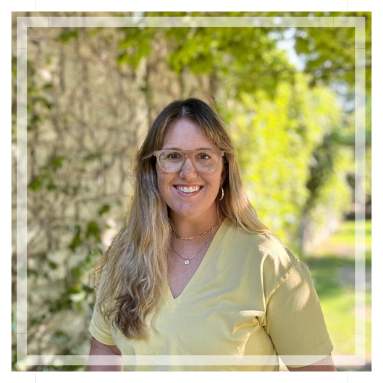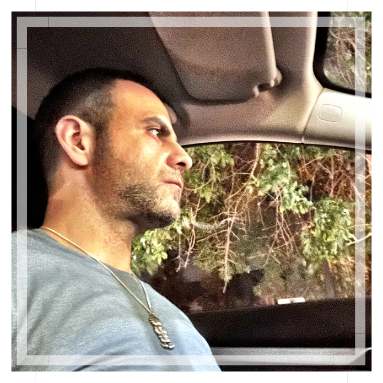
Addiction Counsellor
Mark Laing, B.A. Honours Psychology
Registered Psychotherapist
845 Harrington Court, Unit #200A, Burlington, Ontario L7N 3P3 | 905 319 1488
I have helped literally thousands of men who struggle with pornography addiction and the grief it brings to their marriage. The toxicity of shame and secrecy help keep this struggle private until caught. This addiction is not an easy one to win against on your own and needs the attention of a therapist. Most men have no idea why they are so locked into this addiction. In the last few years, women too are becoming increasingly more caught in the web of porn addiction, equally with no idea why. Although porn addictions look sexual they are often another issues being acted out sexually. This is where I have been so successful in helping people with this addiction and find the freedom they want.

Addiction Counsellor
Steve Wilding, B.A., M.A.
Therapist
845 Harrington Court, #200A, Burlington, Ontario L7N 3P3 | 905-319-1488
Dialectical Behavioral Therapy has been adapted to show benefits with addictions. A primary focus with DBT is noting that unwanted thoughts and behaviors are learned and reinforced. Our sessions will aim to identify and break the negative reinforcement cycle. This approach uses counselling and builds skills that aims to increase feelings of control over dangerous behaviors, experience feelings without avoidance or escape, rebuilding skills for common problems, and finding a sense of connection in the world to move towards happiness.

Addiction Counsellor
Bayridge Counselling Centre, Counselling Centre
Individual, Couples, and Family Counselling
845 Harrington Court, Unit #200A, Burlington, Ontario L7N 3P3 | 905-297-5317
If we do something repeatedly, that we would rather not do, then we have an addiction. The problem with addictions is that people get hurt. The addicted person may not recognize the seriousness of their situation, but eventually both the addict and their loved ones suffer tremendously in a state of helplessness. Many families have been destroyed from addictive behaviour such as substance addiction (drugs/alcohol), gambling, sexual addictions, gaming/internet addictions. A counsellor can help. Workshops, groups, individual or family counselling can assist in breaking the devastating cycle of addiction. Coping skills and emotional awareness to negotiate compelling urges and compulsive in

Addiction Counselor
Tanya Beach, RP (Qualifying)
Registered Psychotherapist (Qualifying)
Available for Online Therapy
Addiction is a multifaceted challenge, and understanding its roots is key to recovery. While I do not offer therapy sessions for addiction, we have several addiction specialists at Psychotherapy Collective who are available to schedule a free 15-minute consultation with you to ensure they are the proper fit for your journey. Visit our profiles at https://www.psychotherapycollective.ca/our-team

Addiction Counselor
Sierra Goldfinger, RP
Registered Psychotherapist
Available for Online Therapy
As a therapist, I know how challenging it can be to manage addiction. Addiction can impact the quality of our lives, our relationships, and our connection to ourselves. Therapy can provide a safe space to navigate addiction and explore what you wish for in relation to the substance or behaviour. Discussing the addiction can also provide us useful clues as to what roots the addiction, allowing us to navigate the core issue at hand and explore preferred coping strategies. Connect with me today for a free consultation to begin your healing journey.

Addiction Counsellor
Jonathan Christink, B.A., M.Ed.
Registered Psychotherapist
845 Harrington Court # 200, Burlington, Ontario L7N 3P3 | 905 319 1488
Addiction is a very complex issue, and it doesn’t take a rocket scientist to know that the impacts of addiction are far reaching. While there are many factors that contribute to addictions, it is imperative to learn about emotional regulation in order to learn how to manage them. Individuals struggling with addictions find themselves in a continuous viscous cycle fighting uncomfortable emotions. Individuals continue with addictions because drugs, alcohol, gambling, etc. provide immediate and temporary relief from their environment and their painful emotions. My focus with addiction counselling is teaching emotional regulation and behavioural modification strategies.

Addiction Counsellor
Shannon Servos, PhD
Shannon Servos psychotherapist
2349 Fairview st, Burlington-new email shannonservos@me.com, Ontario L7R 2E3 | 905 407 3909-
There are many forms of addiction. Understanding what addiction is and how it affects day to day life is a necessary part of the recovery process. Unfortunately it can affect work and relationships. Many times it negatively impacts health. Making a decision to get help is important as accountability is a key component to recovery and healing. Therapy can provide tools for coping as well as learning to deal with the challenges one faces living with addiction.

Addiction Counselor
Hammam Farah, RP, CTP Dpl
Registered Psychotherapist
Available for Online Therapy
Addiction, whether to substances, alcohol, or behaviours like gambling or pornography, often serves as a coping mechanism for deeper emotional pain, loss, or unmet needs. Together, we’ll explore what’s driving these patterns beneath the surface. I provide a safe, compassionate space to help you understand addiction’s roots and develop healthier ways to cope, build resilience, and reclaim control.

Addiction Counselor
Bojena Kelmendi, M.S.W. R.S.W.
Registered Social Worker, Therapist
Available for Online Therapy
Addiction often overtakes whole lives and keeps its victims in captivity taking away the joy and freedom. I work with you and support you to fight it off and rebuild your life. You develop skills to effectively cope with cravings, how to go through your emotions during rough time with no judgement, and keep moving forward towards healing the relationship you have with yourself and the relationships with the close ones and begin to savor the taste of life, free of addiction.

Addiction Counselor
Anna Kiseleva, MA
Registered Psychotherapist
Available for Online Therapy
I'm happy that you are here and taking steps to have a better life. Addiction comes in many forms whether it's substances, alcohol, sex, or internet but it's not the form that matters but the function that it is serving. What pain does this behaviour is trying to soothe or distract you from? If we attend to the pain and discomfort, it gives you an opportunity for recovery. I am here to provide a safe, encouraging, and supportive place to meet where you are at today.

Addiction Counsellor
Rebecca Rosenblat-Billings, B.Sc. (Hons) Psych, RP, CSAT, Ce
Registered Psychotherapist
845 Harrington Court, Burlington, Ontario L7N 3P3 | 9053191488
Sex addiction is one of the hardest addictions to treat because it’s not about avoiding/quitting the “poison”, rather, managing sexual desire in the right context. And since it’s based in shame, internal discomfort & self-loathing, approaching it from a moral judgment standpoint only exacerbates the problem. As such, I conduct the treatment process from a place of understanding, so the client can reach in their darkest places to identify triggers and we can address them – the process also works with porn addiction. I take a multi-prong approach – identifying & treating root causes, eliminating the addictive cycle, replacing it with constructive ways of self-soothing, and building self-esteem
You have Found the Top Therapists for Addiction And Codependency in Burlington, ON.
Thank you for visiting our Ontario page of therapists in Burlington who specialize in addictions in all forms- internet addiction, pornography and sex addictions, gambling, alcohol and drug abuse, shopping, and food addictions. An addiction can destroy lives and relationships. Often times there is a codependent person somewhere in the sphere of an addict. Professional therapy from an addiction specialist in Burlington, ON is a vital part of recoverey and healing. We are ready to help, let's get started.
Burlington is located in Ontario, Canada. It has a land area of 185.66 square kilometers. The population of Burlington is 183,314 people with 71,373 households . The population ranking for Burlington is #28 nationally and #13 for the province of Ontario with a density of 987.30 people per sq km. Burlington therapists serve postal code: L7M.
